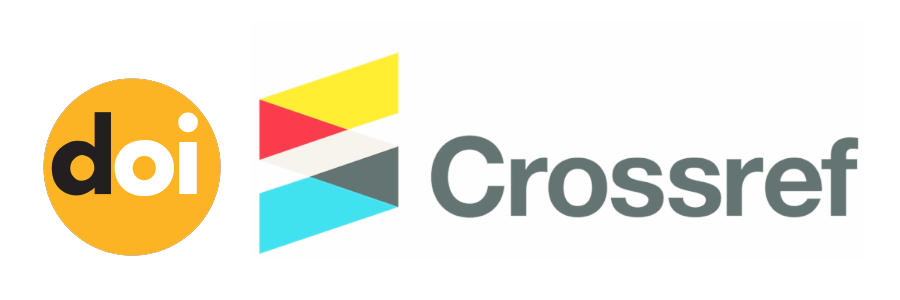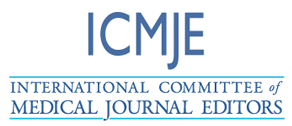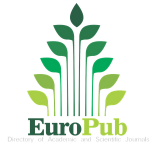The Role of Thalidomide as Maintenance in Nasal Lymphoma
DOI:
https://doi.org/10.55677/IJCSMR/V3I12-01/2023Keywords:
Nk t-Cell lymphoma, NK T-cell lymphoma nasal type, Maintenance therapy, RadiotherapyAbstract
NK T-cell lymphoma nasal type, is a rare presentation of malignant lymphoma, and until now the best treatment has not well defined, the use of radiotherapy it is considered the best treatment , but relapse is common, and use of chemotherapy is necessary. We performed an open label clinical trial , combined the best cytotoxic agents that had employed, aggressive radiotherapy , and introduced the use of maintenance , with low doses of thalidomide. Between August 2010 to December 2018, 166 patients fulfilled the criteria entry; early stage, previously untreated, were enrolled. They received 3 cycles of gemcitabine, methotrexate, etoposide and dexamethasone, following for intensive modulated radiotherapy: 50 Gy in 25 sessions, and another 3 additional cycles of chemotherapy. Patients who achieved complete response were allocated to received thalidomide, oral, 100 mg daily , days to 21 in each cycle of 28 days; and no further treatment (control group) Complete response was obtained in 131 cases (81 %); actuarial curves at 5-years, showed that progression-free survival was worse : 60.8 (95% Confidence Interval (CI): 56.3% to 63.6%) in patients that did not received maintenance: 60.8% : 83.5% (95%CI: 75.2%- 89.1%)(p < 0.001), also overall survival were worse in patients that not received maintenance : 56.8% (95% CI: 49.3% to 61.5%) compared with maintenance group: 77.8% (95%CI: 72.3% to 89.6%) p < 0.001. Acute toxicities were minimal and well controlled, no late toxicities has been observed.
Conclusion: We show in the present study that the use of the best individual drugs , aggressive radiotherapy improve the complete response rate, and the used of thalidomide employed as maintenance improve outcome, well controlled toxicities. Is evident that other studies were performed to define if the present regimen is the best option in these special setting of patients.
References
Allen PB, Lee HO, Wicz MJ.: Management of NK/T-cell lymphoma nasal type. J Clin Oncol Pract 2019;15:513-520
Hernandez-Ruiz E, Alavrado E, Ibanez M et al.: Epidemiology and clinical characteristics of non-Hodgkin lymphoma in Mexico. World j Oncol 2021:12:28-33.
Oliveira -Costa R, Pereira J, Covas-LLAP, et al.: Extranodal NK/T-cell lymphoma nasal type. Front Oncol 2023: 13:1175545.
Yan Z, Wang Z, Zhou E et al.: Treatment of extranodal NK/T-cell lymphoma , Front Immunol 2023: 14:1038685,
Haverkos BM, Pan A, Gror A, et al.: Extranodal NK/T-cell lymphoma nasal type an updated of epidemiology , clinical presentation and natural history in North America and European cases, Curr Hematol Maling Res. 2016:11:514-522.
Zhang L, Sula L, Jia S, et al.: The DGP (dexamethasone, gemcitabine and pegasparigenase) regimen for treatment of extranodal natural killer t-cell lymphoma nasal type . Oncotarget 2018:7; 58394.
Ching P, Sho Nau Q, et al.: Modified Smile (m-smile) and intensity modulated radiotherapy for extranodal NK/T-cell nasal type in a single center population, Leuk Lymphoma 2020;61:3331-3341.
Xu PP,Xion J, Cheng S,et al.:A Phase II study of methotrexate, dexamethasone, etoposide an pegaspargase dsnwiched with radiotherapy in the treatment of newly designed stage I and II extranodal nodal natutal NK T-cell killer lymphoma nasal type, Biomed ‘2017:25:41049.
Nang Y, Wang CQ, Sun P, et al.: A comparison of treatment modalities for nasal NK T-cell in early stage, Oncotarget 2017:8:2036-20370.
Tsege E, Zhang WE, Knowng YC, et al.: Current treatments approaches for NK T-cell lymphomas . J Clin Exp Hematopatol 2017:57:98-108.
Sun Y, Li L, Zhang L, et al.:Outcomes of GCPT (gemcitabine, cisplatin prednisone and thalidomide) versus CHOP in newly diagnosed peripheral T-cell lymphoma patients. Ther Adv Med Oncol 2016:17:1063;
Liu Y, Li L, Zhang L et al.: The efficacy and safety of gemcitabine, cisplatin, prednisone ,thalidomide versus CHOP in patients with newly diafnosis peripheral T-cell lymphoma with analisis of biomarkers, Br J Haematol 2017:178: 773-780.
Aviles A, Neri N, Fernandez R et al.> Combined therapy in untreated in nasal NK-T cell lymphomas. Med Oncol 2013:30:637.
Downloads
Published
Issue
Section
License
Copyright (c) 2023 International Journal of Clinical Science and Medical Research

This work is licensed under a Creative Commons Attribution 4.0 International License.












